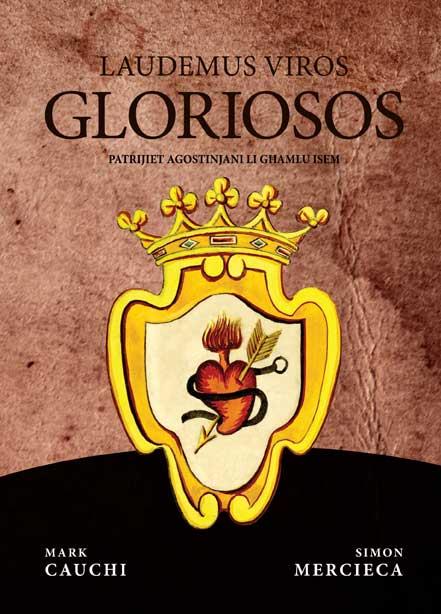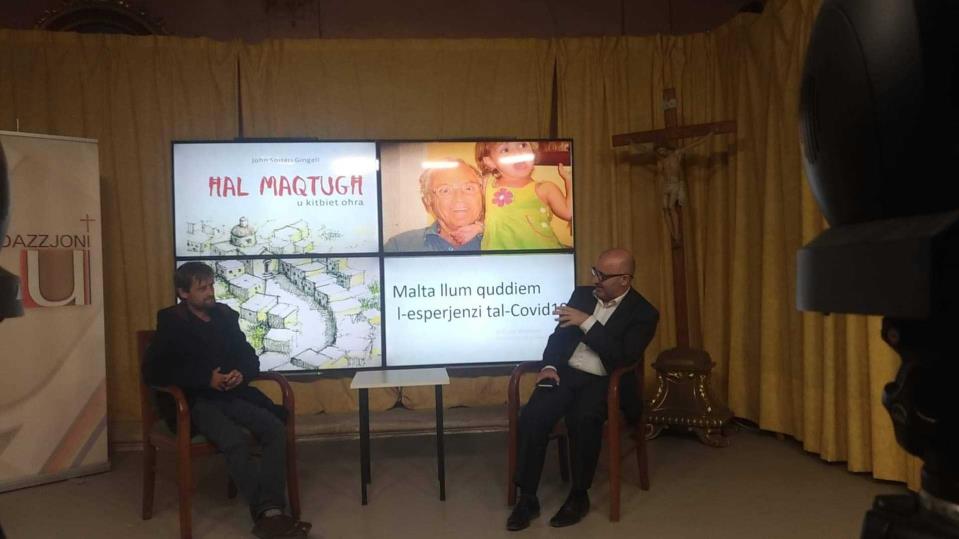Academic, researcher and now blogger, Dr Simon Mercieca is a French-trained historian who specialises in demographic and behavioral history. He is a senior lecturer at the Department of History, Faculty of Arts, University of Malta and has published extensively both in Malta and abroad. He is not allowing a mere pandemic to unsettle him. Here he takes some time to ponder on his research and books not forgetting his popular but controversial blog.
Summer is over and I am 'supposed' to have returned to my normal academic routine. In truth, this year my academic life did not come to a halt in summer. My routine continued uninterruptedly. It is this that made me realize that I was not living my normal life.
Before restrictions set in, I had gone up to Sicily to continue working on one of my projects. The trip was also intended to serve as a short break after publishing a 500-page tome on the Augustinian Friars in Malta and Gozo. Incidentally, this book has details about how, in the past, religous individuals behaved during times of pandemics.

While I was in Sicily, the first cases of Covid-19 were reported in Palermo. I returned to Malta just in the nick of time before Government restrictions were imposed; eventually leading to a number of lockdown measures.
But how did this lockdown affect my academic life? Covid19 ended up restricting both my teaching and research activities. Lockdown started in the second semester. In terms of teaching, I had to go online which was not a problem. I relied on Zoom technology provided by the university and it worked well. At university, the use of such technology turned out to be a blessing in disguise. It was an experiment that I hope becomes a permanent arrangement. This does not mean that physical contact with students should stop. Far from it. But holding a number of lectures online has been positive for students, lecturers as well as the environment. Both students and lecturers have ended up with more time for research. This has nothing to do with the time and duration of lectures which remain unchanged. But it is a result of less time spent on travel and moving from one lecture room to another. This has helped lecturers and students to remain more focused. As for environmental issues, I have noted that there are now fewer cars on campus.

Perhaps thanks to having more free time I finished a book on the use of archives for demographic and genealogical research. This covers my lecture notes and other material gathered over the years related to demographic and genealogical history. It is currently in the final proofreading phase and should be going to print shortly.
Together with Frans X. Cassar, I embarked on an analysis of Medieval Arabic documentation referring to Malta. This volume is in English and includes many original Arabic texts on Malta never seen before. The objective is to reopen the debate about the presence of Muslim and Arab Christians in Malta throughout the second millenium.
Another ongoing project is a massive book on the history of the Order of Saint John in Malta. I don't know when it will be completed as much depends on the type of measures that will be taken by university regarding the possibility of meeting students.
Maria Grech Ganado has handed over to me all her father's history notes. Her father, Professor Walter Ganado, had written a massive history on the Order of Saint John that remained in manuscript form. I decided to turn these tons of paper into a project for my history students. A good deal of work has already been covered. Louis Grech had been of great help, too. With enormous patience, he collected all Ganado's papers and filed them in a systematic fashion. At present, I am editing and analysing them. Hopefully, this project will be terminated in the near future.
All these projects mean that sometimes, I wake up in the middle of the night and get the urge to start working. So much work to be done, I say to myself.
Nonetheless, to relax, I decided to embark on another project during this pandemic. I have turned to Facebook to discuss and analyse local politics. The response has been overwhelming. Facebook does not allow more than 5000 'friends' so I decided to create a group which allows an unlimited number of followers. In three months, I now have over 5000 members. This led me to sset up a proper blog which has now been launched. Those who do not use Facebook can follow me on this blog. This, in turn, has led me to have my own TV programme. Fundazzjoni U approached me to have my own live programme every Wednesday at 8.30 pm on Xejk TV to discuss current events.
Both on TV and in my blogs, my intention is to give space to stories of individuals which are either not covered by the media or covered in an obtuse manner. This was the reason why, during the Nationalist Party internal crisis, I decided to give space to Dr Adrian Delia's supporters. I realized that the mainstream media was completely against him. I am doing the same with regards to Yorgen Fenech's case. I will not delve into his case here, but events are proving that my views are correct with regard to the media's modus operandi.
I have also decided to open up to Covid19 stories. In demographic history, special attention is given to epidemics. I think that this is the first pandemic that has protracted for so long. Normally, when a pandemic hits a country, it hovers for approximately nine months. There can be a second wave but no pandemic protracts over a year uninterrupted. Even here, there is a lot to say. The media is taking Government's side but are Government officials always truthful in what they report?
What lockdown has done for me is to make me concentrate better on my projects and become more socially engaged.